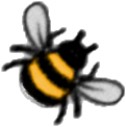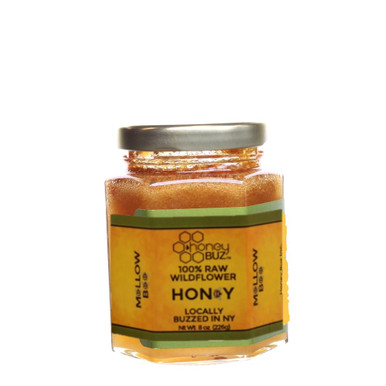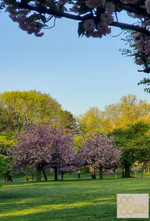Does Local Honey Help with Seasonal Allergies?
I brought a jar of honey to a colleague, whose son was having difficulties in the mornings with allergies. The beautiful flowering trees were making him miserable, so my advice is a teaspoon of raw honey in the morning and in the evening. He was really excited, he had never tasted raw honey from a hive, and I am happy to give him a dose of "natures best" for helping him get over his sneezy itchy nose.
How Long Does It Take for Honey to Help Allergies?
Raw honey contains bee pollen that can serve to eliminate the infection and alleviate the allergy suffered by someone. In fact, raw honey can be used to boost the immune system.
According to research that has been done, consuming honey with a dose that is high enough for eight weeks to give a good impact. Other studies also mentioned that honey can reduce the symptoms of allergic rhinitis or inflammation in the nasal cavity. This type of allergy can cause itching, sneezing, and watery eyes. To consume this honey can be tailored to your needs.
In addition, you can use a standard dose of one teaspoon or one tablespoon of honey. Of the various statements, if asked about how long does it take for honey to help allergies?
So, the answer is tailored to the condition of allergies experienced. However, the time requires patience.
This is because honey overcomes allergies naturally, so it takes some time of ingesting daily amounts to build immunity.
Local honey can also be useful for overcoming seasonal allergies that can cause sore throat, difficulty breathing, coughing, or headaches.
This local honey effectively acts as a good natural remedy for people with seasonal allergies. In addition, by regularly consuming local honey will help you increase immunity to local pollen.
Local honey significantly provides better control of allergy symptoms than conventional medicine. So, you can consume raw honey regularly to cope with seasonal allergies and improve the immune system.
How The Theory About Eating Local Honey Got Started
“The theory got started because local, unprocessed honey was known to contain local pollens,” says Lakiea Wright, MD, an allergist at Women’s Hospital in Boston and medical director at Thermo Fisher Scientific.
“Raw honey is more likely to contain local pollen because it isn’t processed. During processing, pollen is removed from honey.”
When it comes to eating local honey for allergies, the idea is that you ingest local pollen and eventually become less affected by it. This allergy treatment method is called allergen desensitization.
“The concept of allergen desensitization is based on exposing your body to small, escalating doses of allergen to desensitize your allergy cells,” says Dr. Wright. In the case of local honey, you would theoretically be ingesting pollen-containing honey in small amounts regularly to minimize seasonal allergy symptoms.
“With regular exposure to an allergen, your allergy cells become desensitized and are less likely to fire off and cause symptoms. Allergen immunotherapy is based on this concept of desensitization,” explains Dr. Wright.
Local Honey For Allergies Does It Work?
Aside from raw honey, the most misunderstood beehive product is the concept of local honey. Vague rumors about its possible allergy-prevention virtues are becoming more prevalent, prompting people to seek honey that is local, thinking that it might be good for allergies.
But what does local mean?
Honeybees travel and to be local spans a 50-mile radius. It does help when a specific type of pollen or tree allergen affects you. As an example, wildflower honey which contains goldenrod and other native species helps tremendously with "hay fever" those allergies that kick in late summer.
How Can Honey Help Pollen Allergies
Pollen can be inflammatory, but honey has anti-inflammatory properties. Given the right proportions, the degree of inflammation caused by pollen can be overcome by the honey. Therefore, assuming that the body is reacting to a specific pollen , the presence of honey may be inhibiting the reaction to the point where the person doesnt realize there is any allergic reaction going on.
If everything goes right, the honeys defenses against pollen will eventually become a command within the body to not go nuts when it detects the pollen. In other words, we can harness the body's power to heal itself by training the body to react to irritants the way we want it to.
Not all honey is equal some are more potent in their anti-inflammatory properties than others. But if the honey comes from the same place as the pollen, it's safe to assume that because they are parts of the same whole, they can work together to balance each other out.
So, welcome Spring! and when Spring Blossoms make you sneeze, make sure you have some good local apiary honey on your counter.



